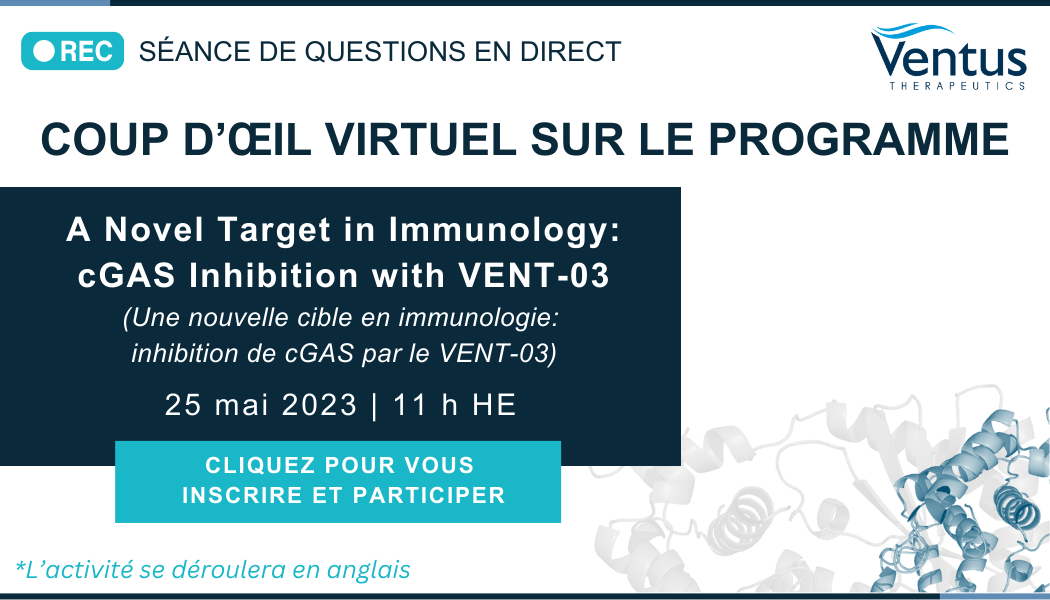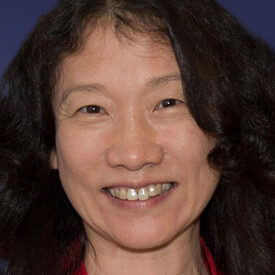
Hao Wu, Ph.D.
Asa and Patricia Springer Professor of Structural Biology, Harvard Medical School
Dr. Wu is the Asa and Patricia Springer Professor of Structural Biology in the Department of Biological Chemistry and Molecular Pharmacology at the Harvard Medical School and Senior Investigator in the Program in Cellular and Molecular Medicine at the Boston Children’s Hospital. She is internationally recognized for elucidating several fundamental themes in signal transduction of the immune system using structural biology approaches.
Prior to her appointment at Harvard, Dr. Wu was Professor at Weill Cornell Medical College. She completed postdoctoral training at Columbia University in the laboratory of Professor Wayne Hendrickson and earned her Ph.D. in Biochemistry from Purdue University in 1992, working in the laboratory of Professor Michael Rossmann. Dr. Wu received her pre-medical training at Peking University and studied Medicine at Peking Union Medical College.
Dr. Wu has received a number of honors, including the Howard Hughes Medical Institute pre-doctoral fellowship, the Aaron Diamond postdoctoral fellowship, the Pew Scholar award, the Rita Allen Scholar award, New York Mayor’s Award for Excellence in Science and Technology, the Margaret Dayhoff Memorial Award from the Biophysical Society and most recently, the Dorothy Crowfoot Hodgkin Award from the Protein Society and the 2019 Seymour & Vivian Milstein Award for Excellence in Interferon and Cytokine Research. She serves on the Scientific Advisory Council of the Cancer Research Institute and the Editorial Board of Cancer Cell.
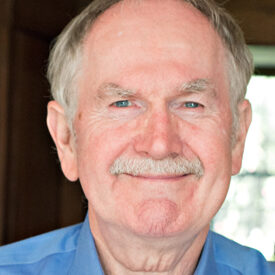
Richard Flavell, Ph.D., FRS
Sterling Professor of Immunobiology,
Yale University School of Medicine
Dr. Flavell is Sterling Professor of Immunobiology at Yale University School of Medicine and an Investigator of the Howard Hughes Medical Institute. His research is fundamental to our understanding of the molecular and cellular basis of innate and adaptive immunity.
Prior to returning to academia, Dr. Flavell was President and Chief Scientific Officer of Biogen Research Corporation for six years. Before Biogen, he was Head of the Laboratory of Gene Structure and Expression at the National Institute for Medical Research in Mill Hill, London and, before that, Assistant Professor at the University of Amsterdam. Dr. Flavell performed postdoctoral work in Amsterdam with Piet Borst and in Zurich with Charles Weissmann. He received his BSc (Honors) and Ph.D. in biochemistry from the University of Hull, England.
Dr. Flavell is a fellow of the Royal Society, a member of the National Academy of Sciences as well as the National Academy of Medicine. He is the recipient of several honors, including The Vilcek Prize in Biomedical Science and The William B. Coley Award for Distinguished Research in Basic and Tumor Immunology. He was recently honored as Distinguished Fellow by the American Association of Immunologists.
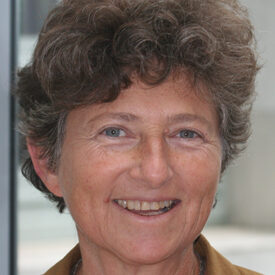
Judy Lieberman, M.D., Ph.D.
Chair in Cellular and Molecular Medicine, Boston Children’s Hospital
Dr. Lieberman is the Chair in Cellular and Molecular Medicine at Boston Children’s Hospital and Professor, Department of Pediatrics, Harvard Medical School. In addition to being at the forefront of developing RNAi-based therapeutics and using RNAi for genome-wide screening, Dr. Lieberman led a team that discovered the molecular basis for inflammatory cell death (pyroptosis) triggered by invasive bacteria and other danger signals.
Prior to her appointments at Harvard, she was a postdoctoral fellow in immunology at MIT. Before that she earned an M.D. in the joint Harvard-MIT Program in Health, Science, and Technology and trained in internal medicine and hematology-oncology at Tufts Medical Center. Dr. Lieberman received a Ph.D. in physics from Rockefeller University and also served as a high-energy physicist at the prestigious Institute for Advanced Study in Princeton. Dr. Lieberman earned her A.B. at Radcliffe College.
She has been widely recognized by the scientific and medical communities, including being elected to the American Academy of Arts and Sciences and named Special Fellow of the Leukemia Society of America and a Pew Scholar in the Biomedical Sciences.
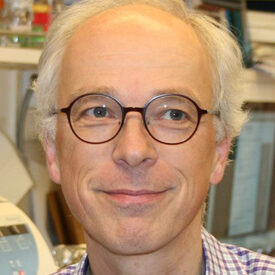
Thomas Tuschl, Ph.D.
Professor of Biochemistry,
Rockefeller University
Dr. Tuschl is Professor of Biochemistry, Biophysics, Chemical Biology, and Structural Biology at Rockefeller University in New York. Dr. Tuschl is world-renowned for his research into the regulation of RNA, and has discovered small interfering RNAs (siRNAs), microRNAs (miRNAs), and piwi-interacting RNAs (piRNAs).
Prior to Rockefeller, Dr. Tuschl was Group Leader at the Max Planck Institute for Biophysical Chemistry and a postdoctoral fellow at MIT and the Whitehead Institute for Biomedical Research. He earned his Ph.D. from Max Planck Institute for Experimental Medicine in Göttingen and B.S. in Chemistry from Regensburg University.
Dr. Tuschl is a member of the German National Academy of Sciences and the recipient of numerous awards, including NIH Director’s Transformative Research Project Award, Ernst Jung Prize, Max Delbrück Medal, Molecular Bioanalytics Prize, Meyenburg Prize, the Wiley Prize, and the AAAS Newcomb Cleveland Prize.
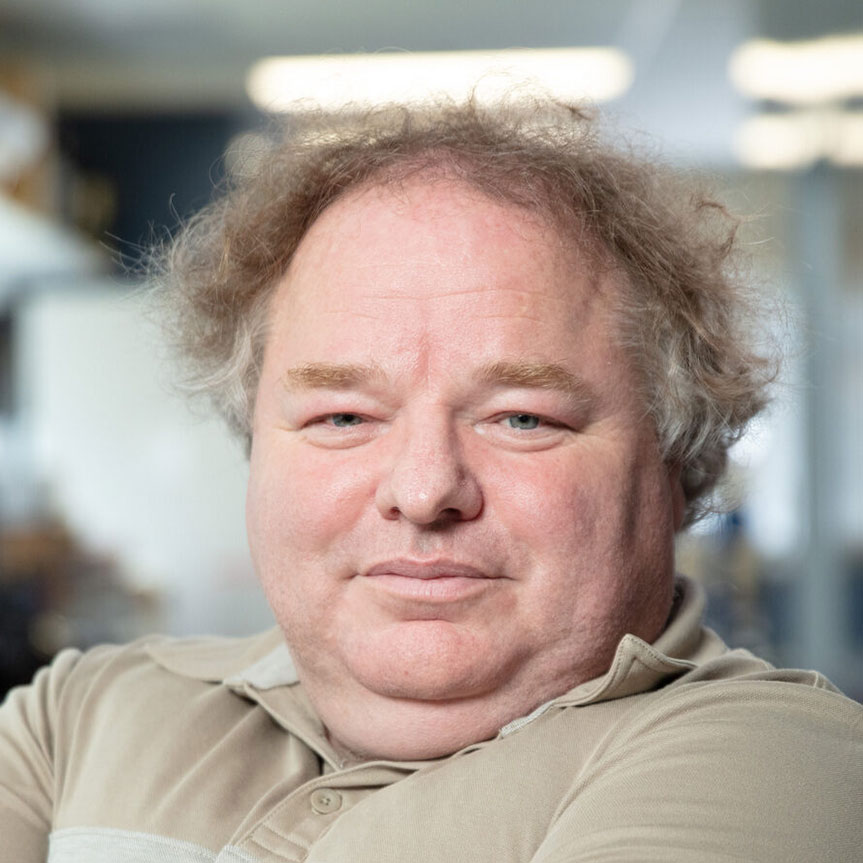
Dan McKay
Founder of ReSOLVE®,
Ventus Therapeutics
Dan McKay is the founder of ReSOLVE® and Head of Computational Chemistry at Ventus Therapeutics. Dan has over 24 years of industry experience in drug discovery, including previously at Novartis and the Merck Frosst Centre for Therapeutic Research. He is a co-author of over 45 publications and over 24 patents.
Dan received his B.Sc. in Chemistry and M.Sc. in Theoretical Chemistry from Carleton University in Professor James Wright's group.

